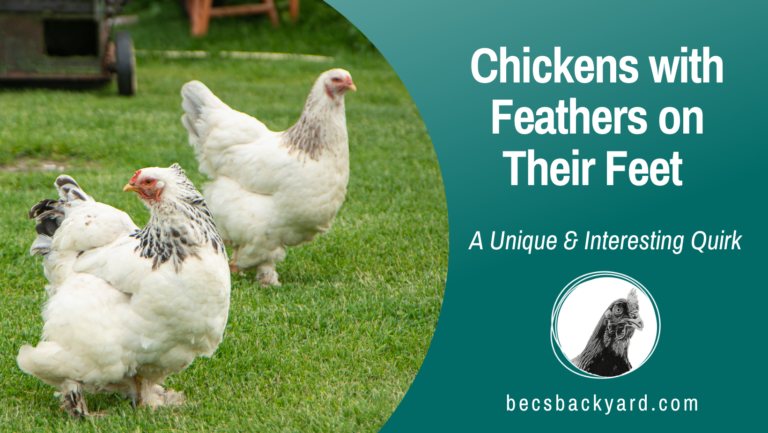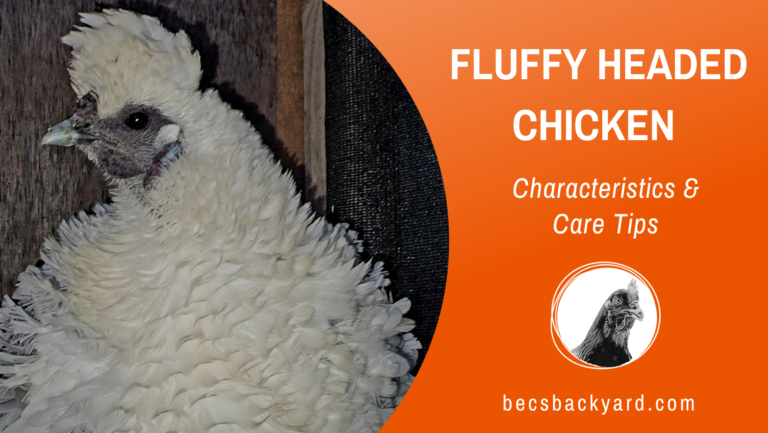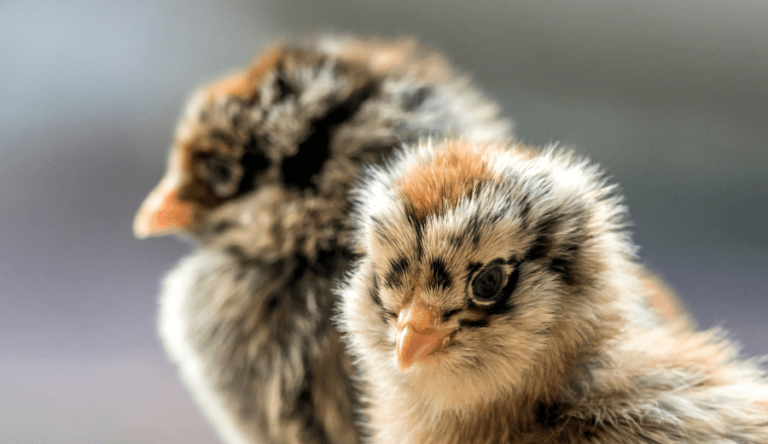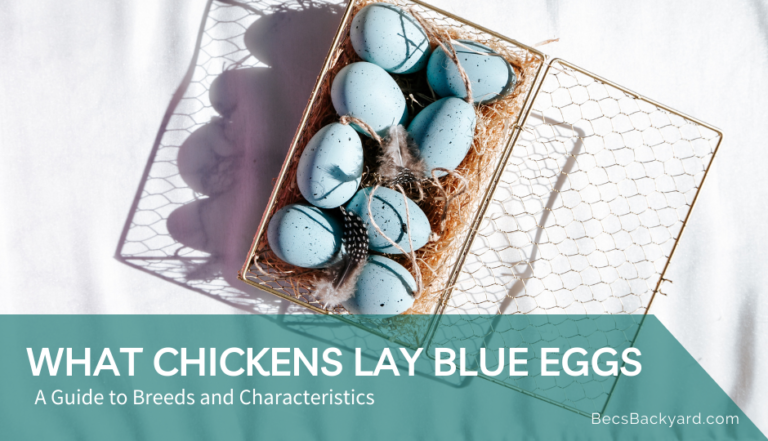The Best Chicken Breeds for Beginners: Top Picks for Novice Poultry Keepers
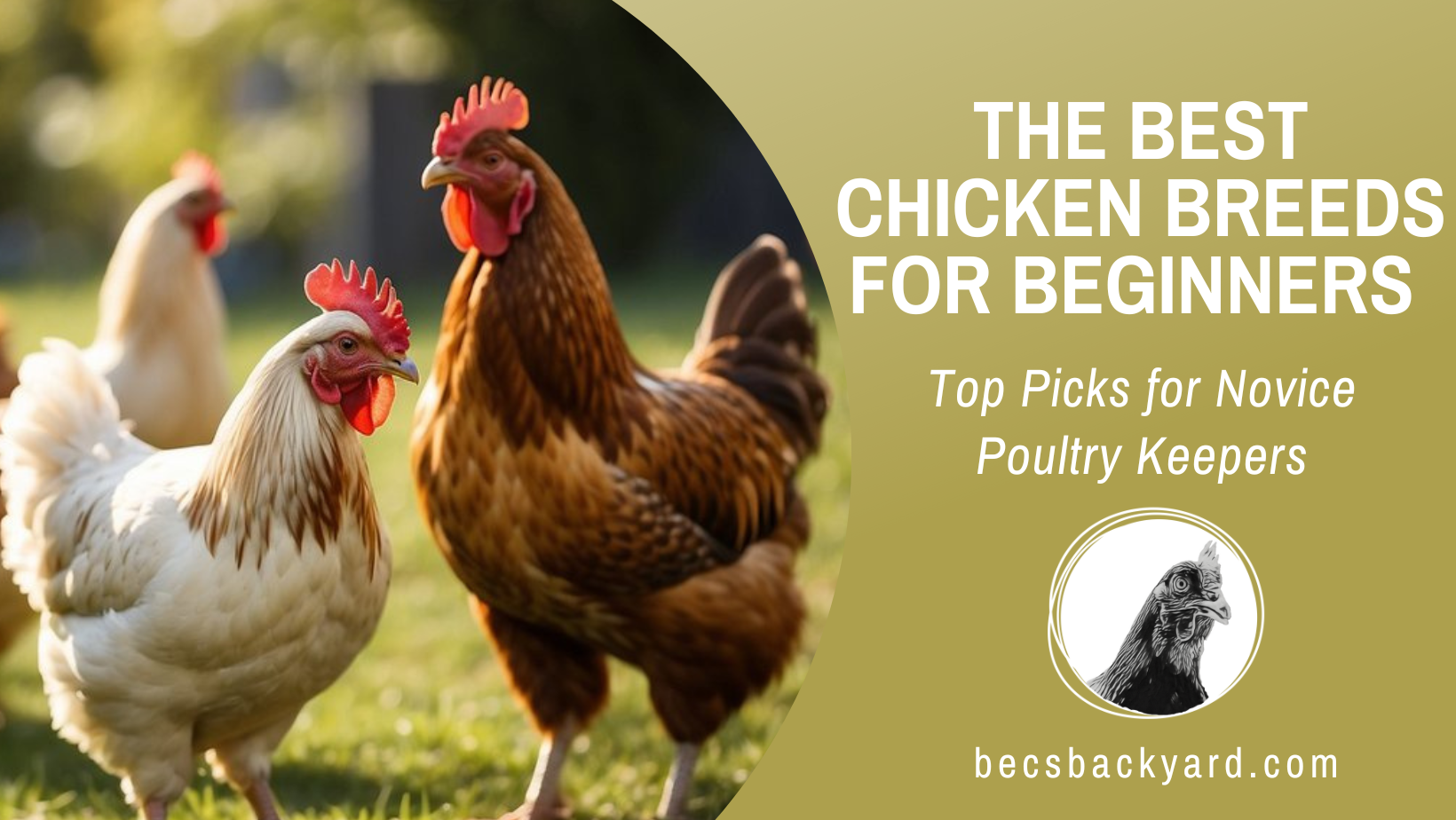
Embarking on the journey of raising chickens can be a rewarding experience, especially if you’re a beginner. To set yourself up for success, choosing the right breed is pivotal. The best chicken breeds for beginners are not only friendly and easy to care for but also resilient and adaptable to various environments. This choice is crucial in developing a harmonious backyard flock and ensuring a pleasant introduction to poultry husbandry for you.

Some of the most beginner-friendly chickens are known for their docile nature, making them a delight to interact with. Breeds like the Rhode Island Red and Buff Orpington are renowned for their easygoing temperament. These chickens don’t just tolerate human interaction; they often welcome it, making them excellent companions for those new to keeping poultry. Their friendly demeanor is paired with an impressive adaptability to different climates, simplifying the care they require.
In addition to temperament and adaptability, beginners should consider the ease of care associated with their first flock. Breeds that are hardy and resistant to common diseases reduce the complexities of chicken keeping, allowing you to enjoy the experience without constantly worrying about the health of your birds. With these factors in mind, selecting the right breed can ensure your chicken-keeping journey starts on a positive note, yielding a thriving coop and a plentiful supply of eggs.
Choosing the Best Chicken Breeds for Beginners
When starting your journey into poultry keeping, choosing the right chicken breed is crucial for a harmonious backyard flock and to meet your egg-laying or meat-production needs.
Assessing Your Space and Commitment
Your available space dictates the size of your flock and the breeds you can consider. Rhode Island Reds, for example, are versatile and can thrive in both coop and free-range conditions. Before choosing a breed like Orpingtons, known for their calm demeanor, ensure you have ample space for them to roam, as they benefit from exercise to maintain their health.
Understanding Chicken Behavior
Chickens display a variety of personalities and establish a pecking order. Leghorns tend to be more active and, at times, flighty, which may influence the flock’s dynamics. Observing a breed’s temperament is important for a peaceful backyard environment. If you are considering a rooster, remember that one might be sufficient to avoid conflicts and excessive noise.
Chickens for Eggs and Meat
Determine if you prefer a breed for egg-laying, meat production, or both. Rhode Island Reds and Leghorns are excellent layers, with the former producing around 250-300 brown eggs annually. For meat, consider breeds like Orpingtons. A dual-purpose breed offers both eggs and meat, offering versatility for your needs.
Health and Hardiness Considerations
Choose a hardy breed with good disease resistance for a low-maintenance flock. Consider your climate when selecting a breed; some, like the Rhode Island Red, are hardy in various climates. Always inquire about the health history of the breed to ensure you’re getting resilient birds that will thrive in your specific environment.
Best Chicken Breeds for First-Timers
When selecting your first chicken breed, consider hardiness, temperament, and egg production. Certain breeds are highly recommended for beginners because they meet these criteria and are known for being particularly suitable for those just starting out with backyard poultry.
Rhode Island Red
Rhode Island Reds are renowned for their hardiness in various climates and their ability to lay 250-300 large brown eggs annually. If you have young children, these chickens are an excellent choice due to their friendly nature.
Plymouth Rock
Plymouth Rock chickens are another great option for first-timers. Known for their fluffy appearance and gentle demeanor, they’re not only easy to handle but are also considered good layers.
Buff Orpington
The Buff Orpington is a popular breed among beginners because of its docile and calm temperament. These fluffy and gentle birds adapt well to being handled and make excellent pets, while also offering consistent egg production.
Australorp
The Black Australorp is highly regarded for its docile temperament and ability to thrive in various environments. These birds are prolific layers, often producing a significant number of eggs, which can be an advantage for first-time chicken keepers.
Silkie
Silkies are distinctive for their fluffy plumage and sweet nature. They can be particularly broody and make good mothers. As pets, Silkies are well-suited for families and those who appreciate chickens for more than just their egg-laying abilities.
Leghorn
The White Leghorn stands out as a productive egg layer, especially valued for their high egg production and heat tolerance. These birds can be less docile than other breeds mentioned but excel in laying a large quantity of eggs.
Caring for Your Chickens
When starting with chicken farming, it’s crucial to understand the essentials of chicken care. Proper feeding, coop maintenance, and vigilant healthcare will ensure your flock thrives.

Feeding and Nutrition
Your chickens’ diet is foundational to their health and egg production. A balanced nutrition plan must include:
- Layers Pellets: The primary source of nutrients for egg-laying breeds.
- Grit: Helps chickens digest food effectively.
- Fresh Water: Clean and accessible water is vital, so check and refill water containers daily.
Provide a mix of proteins, grains, and greens to keep your chickens healthy. Follow a consistent feeding schedule to maintain routine and avoid overfeeding.
Coop Maintenance and Safety
Your coop must be a safe haven for your chickens, providing protection from predators and extreme weather. Follow these key points:
- Cleanliness: Regularly remove waste and refresh bedding to prevent disease.
- Space: Ensure there is enough space for each chicken to avoid stress and aggression.
- Ventilation: Adequate airflow prevents respiratory issues.
- Security: Strengthen your coop against predators with robust fencing and secure locks.
A weekly cleaning routine coupled with daily inspections will keep the coop in good condition.
Healthcare and Daily Observations
Effective disease prevention begins with observation. Incorporate these practices into your daily routine:
- Regular Check-Ups: Look for signs of illness or distress like changes in behavior or appearance.
- Vaccinations: Keep up to date with necessary vaccines to prevent common diseases.
Prompt identification and treatment of health issues are paramount. If you spot problems, consult a veterinarian who specializes in poultry. Remember, prevention is better than cure, so maintain a keen eye for your chickens’ wellbeing.
Chicken Keeping Beyond the Basics
As you become more comfortable with chicken keeping, you’ll find opportunities to enhance your experience by breeding, expanding your flock, and engaging with chicken communities. This will involve long-term planning and might lead you to consider rearing your own chicks, integrating new breeds, or even modifying your coop.
Breeding and Rearing Chicks
Successful breeding starts with selecting the right chickens. Choose healthy birds with desirable traits and consider genetics for the best results. When you’re ready to start hatching eggs, you’ll need an incubator or a broody hen and a grasp of the incubation process:
- Temperature: Maintain a steady 99.5°F (37.5°C) in the incubator.
- Humidity: Keep it around 50-65% during incubation and up it to 65-75% for the final days.
- Turning Eggs: Turn the eggs at least three to five times a day until three days before hatching.
Rearing chicks involves proper care from day one—ensure your chicks have:
- Warmth: A heat source maintaining a temperature of 95°F in the first week.
- Nutrition: Access to chick starter feed and clean water.
- Space: Sufficient room to move and grow, with the space requirement increasing as they do.
Expanding Your Flock
If you plan on expanding your flock:
- Assess your space to ensure you can maintain a clean and healthy environment.
- Quarantine new birds for at least 30 days to prevent disease transmission.
- Gradually introduce new chickens to the flock to minimize stress and aggression.
When considering new breeds, research their temperament and needs as some may require different care than your current flock.
Joining Chicken Communities
Joining chicken communities can be invaluable. Whether it’s forums or local farming groups, sharing experiences and getting advice can help you avoid common pitfalls. Here’s how you can engage:
- Participate in Local Farming Groups: Connect with fellow enthusiasts for trade, advice, and support.
- Online Forums: Websites like BackYard Chickens provide a platform to discuss care, breeding, and coop construction.
- Events: Attend local shows or talks to learn about advanced practices and new breeds.
Through these communities, you’ll gain insights into long-term planning and the nuances of advanced chicken keeping.
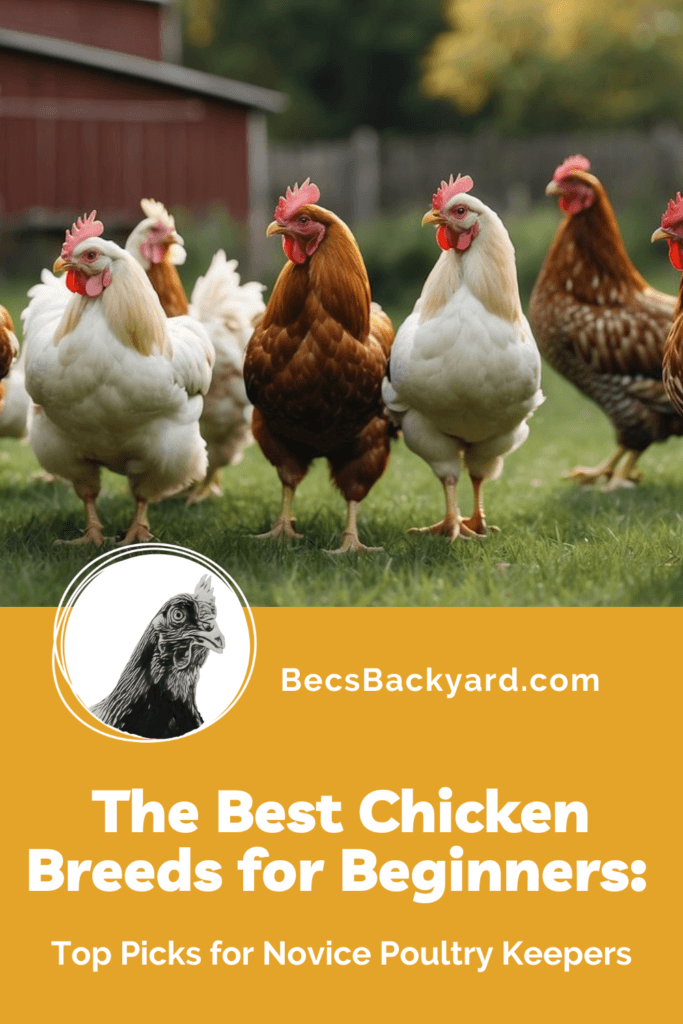
Conclusion
Selecting the right breed is fundamental to successful chicken keeping, especially if you are new to the endeavor. Black Australorps and Rhode Island Reds come highly recommended due to their hardiness, prolific egg-laying abilities, and agreeable temperaments. Both breeds adapt well to different climates and are generally straightforward to care for.
- Black Australorps: More than 5 eggs/week; friendly nature.
- Rhode Island Reds: 250-300 brown eggs/year; suitable for families with children.
As a beginner, seeking out dual-purpose breeds might be most beneficial. These chickens not only provide a steady supply of eggs but can also be raised for meat. This versatility makes them a practical and economical choice.
| Characteristics | Benefits for Beginners |
|---|---|
| Hardy | Tolerant to various climates |
| Friendly | Ease in handling and care |
| Egg Production | Reliable source of food |
Your experience with poultry will undoubtedly grow alongside your flock. Continual learning about their care, behavior, and health will enhance both your confidence and your enjoyment. Remember that each breed has unique traits, so your choice should align with your goals, whether they be egg production, meat, or companionship.
By starting with the right breed, you’ll set the stage for a rewarding journey in the world of poultry. As your knowledge expands, you may explore a wider variety of breeds, but beginning with these dependable options will give you a solid foundation in chicken keeping.



